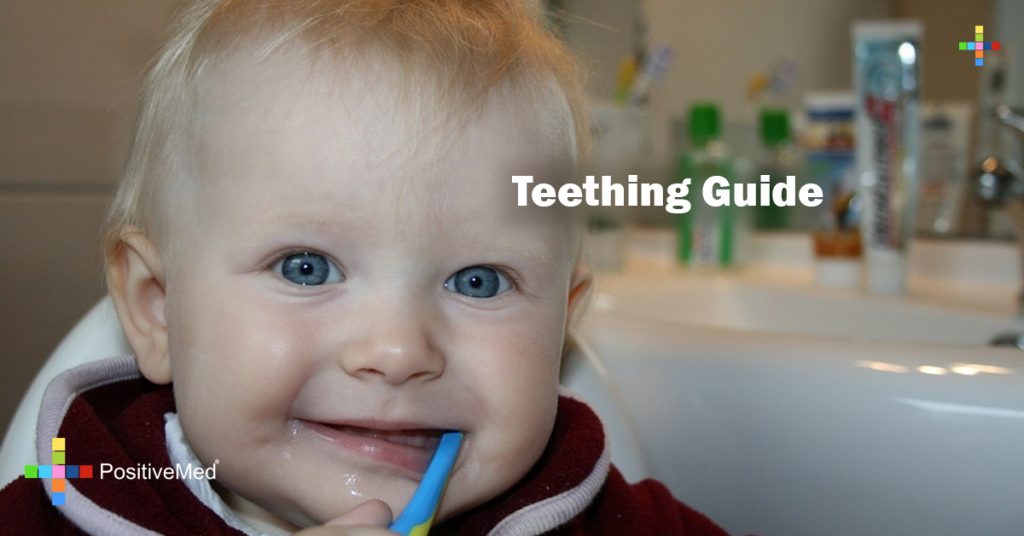
Teething is the process of new teeth rising or erupting through the gums. Classic signs and symptoms of teething are:
- Drooling
- Chewing on solid objects
- Irritability or crankiness
- Sore or tender gums
 The symptoms of teething usually appear 3-5 days before the tooth coming out and disappear as soon as the tooth erupts the skin (gum). These symptoms vary in different infants and the severity of symptoms are often related to the family history.
The symptoms of teething usually appear 3-5 days before the tooth coming out and disappear as soon as the tooth erupts the skin (gum). These symptoms vary in different infants and the severity of symptoms are often related to the family history.
Teething can begin as early as 2 months of age, even when there’s no sign of a tooth coming out. Check out this useful chart to learn more about when the teeth are usually coming out and when they often fall out.
According to MayoClinic.com, the best ways to deal with teething are as following:
- “Rub your baby’s gums. Use a clean finger, moistened gauze pad or damp washcloth to massage your baby’s gums. The pressure can ease your baby’s discomfort.
- Offer a teething ring. Try one made of firm rubber. The liquid-filled variety might break under the pressure of your baby’s chewing. If a bottle seems to do the trick, fill it with water. Prolonged contact with sugar from formula, milk or juice contributes to tooth decay.
- Keep it cool. A cold washcloth or chilled teething ring can be soothing on a baby’s gums. Don’t give your baby a frozen teething ring, however. Contact with extreme cold can be harmful.
- Try hard foods. If your baby is eating solid foods, you might offer something edible for gnawing — such as a peeled and chilled cucumber or carrot. Keep a close eye on your baby, however. Any pieces that break off might pose a choking hazard.
- Dry the drool. Excessive drooling is part of the teething process. To prevent skin irritation, keep a clean cloth handy to dry your baby’s chin.”







